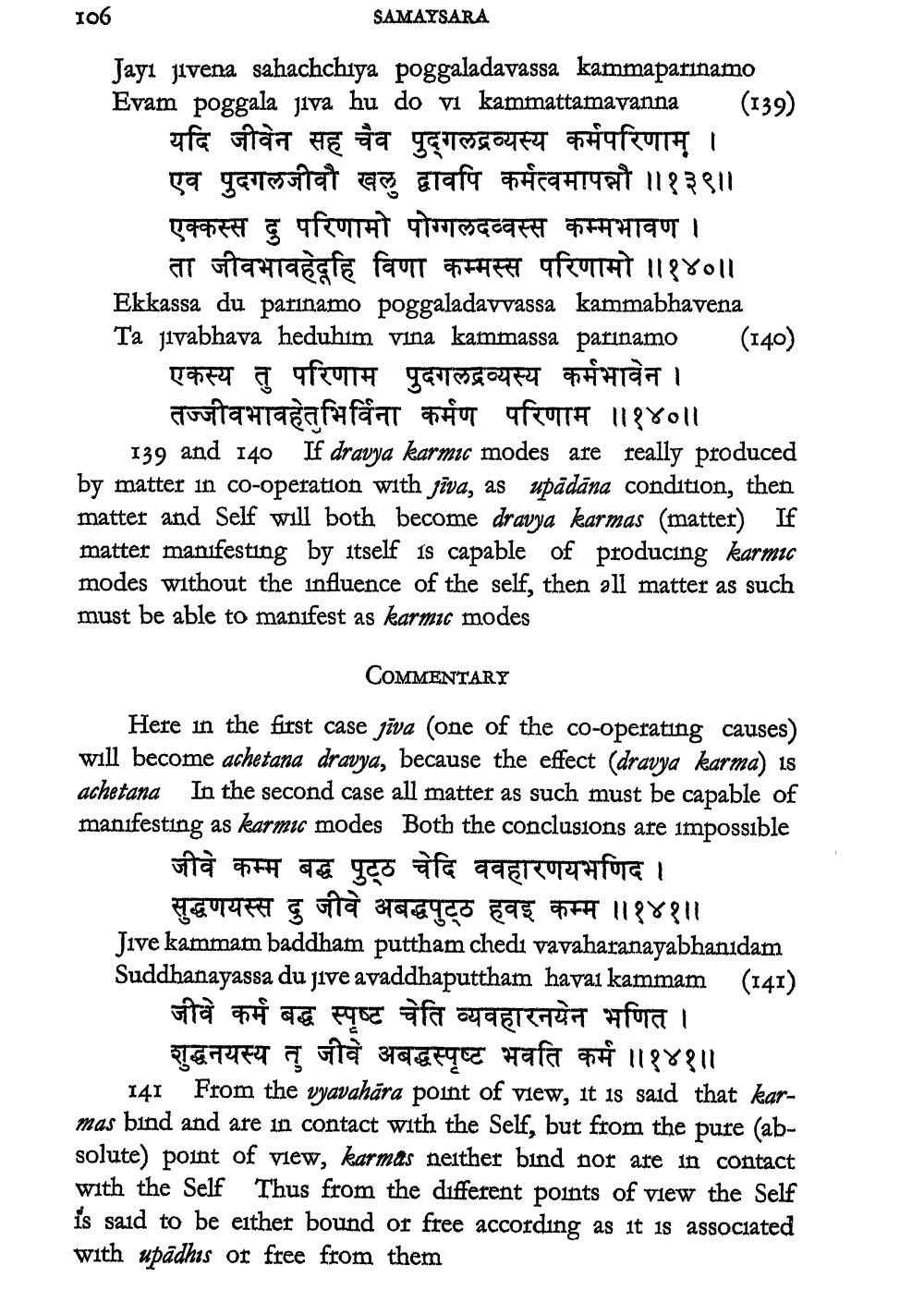________________
106
SAMAYSARA
Jayı jivena sahachchiya poggaladavassa kammaparinamo Evam poggala jiva hu do vi kammattamavanna (139) यदि जीवेन सह चैव पुद् गलद्रव्यस्य कर्मपरिणाम् । एव पुदगलजीवौ खलु द्वावपि कर्मत्वमापन्नौ ॥१३९॥ एक्कस्स दु परिणामो पोग्गलदव्वस्स कम्मभावण । ता जीवभावहेहि विणा कम्मस्स परिणामो ॥ १४० ॥ Ekkassa du parinamo poggaladavvassa kammabhavena Ta jivabhava heduhim vina kammassa parinamo (140) एकस्य तु परिणाम पुदगलद्रव्यस्य कर्मभावेन । तज्जीवभावहेतुभिर्विना कर्मण परिणाम ॥ १४० ॥
139 and 140 If dravya karmic modes are really produced by matter in co-operation with jiva, as upādāna condition, then matter and Self will both become dravya karmas (matter) If matter manifesting by itself is capable of producing karmic modes without the influence of the self, then all matter as such must be able to manifest as karmic modes
COMMENTARY
Here in the first case jiva (one of the co-operating causes) will become achetana dravya, because the effect (dravya karma) is achetana In the second case all matter as such must be capable of manifesting as karmic modes Both the conclusions are impossible जीवे कम्म बद्ध पुट्ठ चेदि ववहारणयभणिद । सुद्धणयस्स दु जीवे अबद्धपुट्ठे हवइ कम्म ॥ १४१ ॥ Jive kammam baddham puttham chedi vavaharanayabhanıdam Suddhanayassa du jive avaddhaputtham havai kammam जीवे कर्म बद्ध स्पृष्ट चेति व्यवहारनयेन भणित । शुद्धनयस्य तु जीवे अबद्धस्पृष्ट भवति कर्म ॥ १४१ ॥ From the vyavahara point of view, it is said that karmas bind and are in contact with the Self, but from the pure (absolute) point of view, karmas neither bind nor are in contact with the Self Thus from the different points of view the Self is said to be either bound or free according as it is associated with upadhus or free from them
141
(141)




